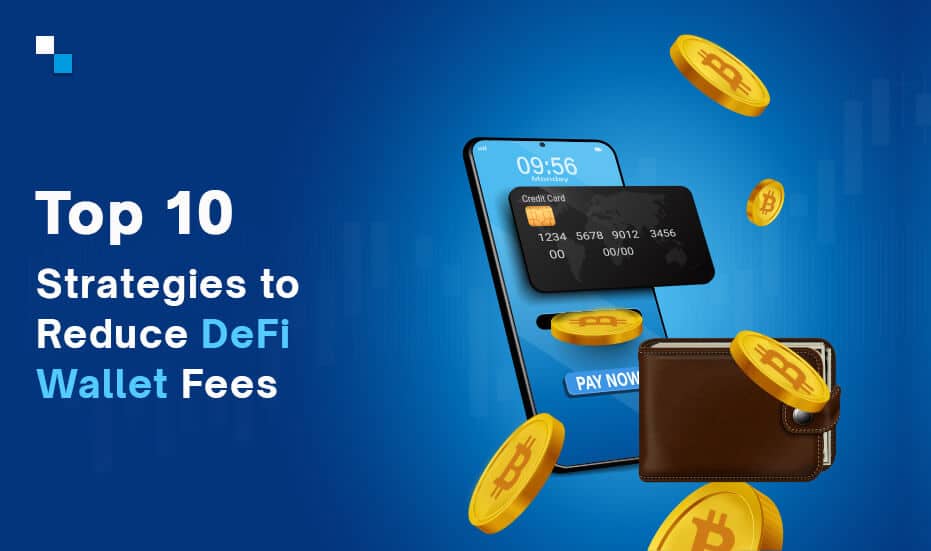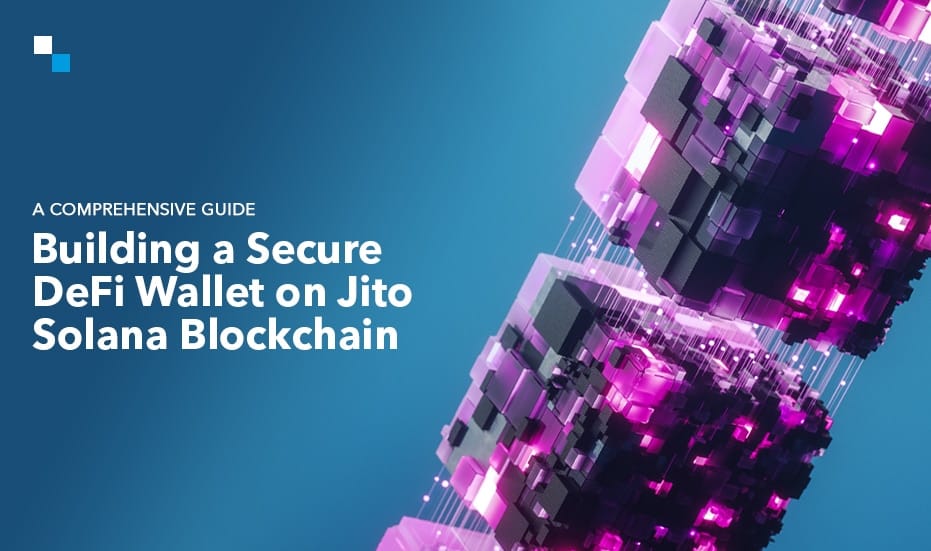
A Comprehensive Guide to Cardano Smart Contract Development in 2023
September 22, 2023
Choosing the Right Technology Stack for your Cryptocurrency Exchange
September 22, 2023DeFi wallet fees is a crucial component of the decentralized finance realm. They have a major role in the working of the blockchain networks, specifically Ethereum. An in-depth understanding of fees is essential for DeFi, as it directly impacts the cost and speed of transactions, dApp interactions, and smart contracts. In this blog, we will discover the ins and outs of DeFi wallet fees types and identify ways to reduce them:
What is DeFi Wallet Fees?
In the case of DeFi wallets, the gas fee is the price paid by users to perform operations on Blockchain. It is paid in cryptocurrency as compensation for computational resources and network bandwidth needed to process, validate transactions, and execute smart contracts.
Before buying DeFi wallet solutions, compare the gas fees charged by every platform and pick a solution that helps you perform transactions at a low cost. A sound investment decision right from the beginning will provide users with an efficient solution without affecting their budget.

Types of DeFi Wallet Fees
DeFi wallet fees consist of various types of DeFi wallet fees that users encounter while performing DeFi transactions. They have been divided into the following main types:
- Transaction Fees
Performing Token Swapping on decentralized exchanges or giving liquidity to liquidity pool users are supposed to pay transaction fees. These are given to network validators to carry out and validate the transactions.
- Gas Fees
Gas fees is basically transaction fees linked with Ethereum and other blockchains. Users provide gas fees for computational resources needed to execute smart contracts and blockchain transactions. Gas fees depend on network congestion and transaction complexity.
Read More: DeFi Wallet Development: Your Key to Success in Cryptoverse
- Withdrawal Fees
Users must pay withdrawal fees When they withdraw assets from other platforms to an external wallet. The fees depend on the platform and blockchain network you are using.
- Exchange Fees
If a wallet has an in-built DEX, users are supposed to pay exchange fees for trading assets on the wallet. This involves trading fees, liquidity provider’s fees, and spread fees.
- Deposit Fees
Users should pay deposit fees if they want to store assets in the wallet. Fees are generally linked with off-chain deposits or on-chain interactions.
- Smart Contract Interaction fees
Users are expected to pay fees for interactions while performing activities like lending, borrowing, or yield farming. The fees is calculated based on how complex the transaction is.
- Management Fees
Users have the opportunity to give their assets to yield farming or staking. The fees generally depend on assets under management or performance.
- Subscription Fees
Advanced wallet features like premium analytics or advanced portfolio tracking can be purchased via subscription plans to be paid monthly or annually.
The users are supposed to pay fees according to the platform they choose. A complete estimate before buying a DeFi wallet solution will prevent hassles later.
How to Reduce DeFi Wallet Gas Fees?
Minimized gas fees will make activities supported by DeFi wallets economical. Here are tips and tricks from DeFi wallet development experts that you can implement to reduce gas fees:
- Gas Price Optimization
Introduce gas price optimization tools within the wallet that help you set apt gas fees for your transactions. Don’t overpay to accelerate the confirmation process while the platform takes lower gas prices.
- Account Abstraction
Account Abstraction is an effective way to reduce costs. This technique segregates senders and signers, allowing other entities to pay gas fees and enabling efficient contract interactions.
- Select Appropriate Time
Make sure that the transactions are performed during low network activity. Gas fees reduce as the network becomes less congested.
- Batch Transactions
In certain cases, you can batch the transactions into a single one. By amalgamating the transactions, you can significantly lower your gas fees.

- Layer2 Solutions
Invest in a DeFi wallet that supports Layer-2 solutions like Optimistic & zk Rollups. This can minimize gas fees and enhance wallet security.
- Gas Tokens
Gas Tokens have been used to pay gas fees on Ethereum and compatible platforms. This can be obtained during low gas fees and used during high fees, saving a lot of money.
- Stake & Earn Rewards
Certain wallet users receive rewards or discounts for staking the tokens within the platform. These rewards offset gas fees for a certain time.
Read More: How can Businesses Monetize their DeFi Wallet?
- Consider Blockchain Alternatives
Start using Blockchain platforms apart from Ethereum. Certain platforms charge low gas fees and make the transaction process budget-friendly.
Invest in Antier’s Efficient Low Gas Fees Based DeFi Wallet
Developing a low gas fees-based DeFi wallet requires meticulous planning, smart design selection, and numerous optimization techniques. This is when you need a reliable DeFi wallet development partner, Antier, to obtain an efficient and secure solution. We have the biggest team of over 700 developers that leverage their technical knowledge and experience, which has helped them deliver over 50 low gas fee-based wallets to businesses globally. The experts are updated with advanced techniques related to blockchain scalability and gas fee reduction technologies to give you a competitive edge in the competitive DeFi landscape. Connect with the experts for a demo or an exact estimate today!



